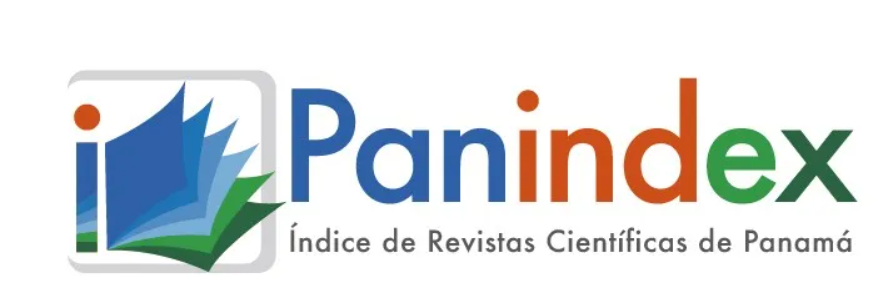Manuscripts sent to SALUTA Magazine must be original and unpublished and must not be simultaneously in the process of publication in other magazines, compilations or any other means of publication. The content of the publications and the links suggested in them are the sole responsibility of the authors and not of the METROPOLITAN UNIVERSITY OF EDUCATION, SCIENCE AND TECHNOLOGY
(UMECIT) or the magazine SALUTA. They are protected by international copyright laws as well as the logos of UMECIT AND SALUTA MAGAZINE, hence their reproduction is totally prohibited. The copyright will belong to the UMECIT.
Under a Creative Commons Attribution License authors may share work with acknowledgment of authorship of the work and initial publication in this journal.



Abstract
The present work systematization of the family advisory experience “Educating about sexual diversity: Diverse understandings from the experience of young people from universities in Palmira and Bogota towns”. Documents the results of the practical experience of intervention research, based on the experiences of five young university students with diverse sexual orientation, taking into account aspects of their context, the difficulties and opportunities for LGTBIQ+ population and their perception of the availability of resources that contribute to their well-being. The research was directed to know their understanding about sexual and gender diversity; as well as their recognition of support networks, by approaching their realities in meetings of reflexive dialogue. The method applied is based on hermeneutic and critical paradigms, with emphasis on qualitative research; oriented in generating changes in the senses and meaning of human sexuality from a systemic perspective of lazyness, addressing the gender focus from diverse sexualities, and recognition of human rights. The review of the experience was carried out from two axes: sexual and gender diversity, and support networks. As a result, transformations in the stories of the participants are noticed around social practices in each one of their context, finding a clear break with the markings of people surrounding them, in relation to religious beliefs about sexuality; reaffirmation of their identity, and capacity building for advocacy in participation spaces.
Keywords
References
Aragón, M. (2011). La teoría de sistemas autopoiéticos. Una breve introducción a una teoría radical de la sociedad.
Banco mundial (2018). Orientación sexual e identidad de género. Tomado de: https://www.bancomundial.org/es/topic/sexual-orientation-and-gender-identity
Bertalanffy, L. (1986). Teoría general de los sistemas fundamentos, desarrollo, aplicaciones (1a. Ed.). México: Fondo de cultura económica.
Bronfenbrenner, U. (1987). Cuarta parte: Más allá del ecosistema. En: La ecología del desarrollo humano. Buenos Aires: Ediciones Paidós Ibérica. p. 232 a 314. La reflexión sobre las dimensiones del contexto sociocultural y político en el marco de la sistematización de experiencias.
Butler, J. (2004) Deshacer el género, Paidós Studio, Barcelona. Tomado de http://www.psi.uba.ar/academica/carrerasdegrado/psicologia/sitios_catedras/practicas_profesionales/825_rol_psicologo/material/descargas/unidad_2/optativa/deshacer_genero.pdf
Butler, J. (2006) El género en disputa. El feminismo y la subversión de la identidad. Paidos. Barcelona, España. Tomado de: http://www.lauragonzalez.com/TC/El_genero_en_disputa_Buttler.pdf
Carretero, Á. (2004). David Lyon: Jesús en Disneylandia. La religión en la postmodernidad. Cátedra, Madrid, 2002. Foro Interno, 4, 183 - 185. Tomado de: https://revistas.ucm.es/index.php/FOIN/article/view/FOIN0404110183A
Cogollo, C. (2016). Trayectorias de la sistematización de experiencias. Su constitución como posibilidad de pensar la producción de conocimiento en escenarios académicos. Revista Interamericana de Educación, Pedagogía y Estudios Culturales, P. 53 - 67.
Colombia Diversa (2020). Informe trinacional: litigio estratégico de casos de violencia por prejuicio por orientación sexual, identidad y expresión de género en Colombia, Perú y honduras. Tomado de https://colombiadiversa.org/colombiadiversa2016/wp-content/uploads/2020/05/INF-TRINACIONAL_PRSX_FINAL-BKUP.pdf
Departamento Nacional de Estadísticas DANE (2020). Encuesta nacional de consumo de sustancias psicoactivas 2019.
Espinal, I., Gimeno A. y González F. (2004). El enfoque sistémico en los estudios sobre la familia. Revista electrónica Internacional de Sistemas, 14, 21-35. Recuperado de http://scielo.isciii.es/scielo.php?script=sci_nlinks&ref=2043942&pid=S1989-3809201400010000400017&lng=es
Fondo de Población de las Naciones Unidas, UNFPA (2020). Población mundial. Tomado de: https://www.unfpa.org/es/data/world-population-dashboard
Galvis, A.; Gómez, J.; Orcasita, L. y Rueda, J. (2020). Interseccionalidad en el proceso de revelación y aceptación de la orientación sexual de hijos homosexuales en dos familias afrocolombianas. Revista Controversia, 215, 75-108.
House, J. (1981). Works stress and social support. Addison-Wesley Publishing Company. U.S.A.
Luhmann, N. (1996). Introducción a la teoría de Sistemas. Recuperado de https://migralt.files.wordpress.com/2015/01/luhman_intro-teorc3ada-sistemas-1.pdf
Minuchin, S. (1974). Familias y terapia familiar, 5ª ed., trad. de Víctor Fichman, Gedisa, Barcelona. Assessing Families and Copules, Pearson, Boston. Tomado de: https://www.cphbidean.net/wp-content/uploads/2017/11/Salvador-Minuchin-Familias-y-terapia-familiar.pdf
Núñez, G. (2016). Los estudios de género de los hombres y las masculinidades: ¿qué son y qué estudian? Culturales, vol. IV, núm. 1, enero-junio, 2016, pp. 9-31 Universidad Autónoma de Baja California Mexicali, México. ISSN: 1870-1191. Disponible en: https://www.redalyc.org/articulo.oa?id=694/69445150001.
Ontiveros, S (1997). Niklas Luhmann: Una visión sistémica de lo educativo. Perfiles Educativos, XIX (78). ISSN: 0185-2698. Tomado de: https://www.redalyc.org/articulo.oa?id=132/13207803
Organización Mundial de la Salud. OMS. (2018) La salud sexual y su relación con la salud reproductiva: un enfoque operativo. ISBN 978-92-4-351288-4. Tomado de: https://apps.who.int/iris/bitstream/handle/10665/274656/9789243512884-spa.pdf?ua=1
Ovejero, A. (2015) Psicología social e identidad: dificultades para un análisis psicosociológico. Papeles del CEIC. International Journal on Collective Identity Research, (2),1-17. Tomado de: https://www.redalyc.org/articulo.oa?id=765/76541396003
Quiroz, A., Velásquez, A., García, B. y González, S. (2003). Técnicas Interactivas para la investigación social cualitativa, Medellín: Fondo Editorial Luis Amigó. Cap. 1. Contextos, pp. 9 a 15, Cap. 3. Perspectivas metodológicas, p. 33 a 47. Cap. 4. Técnicas interactivas para la investigación social cualitativa, p. 48 a 63 y 71 a 73.
Rubino, A. (2018). Disidencia de sexo-género e identidad política en Kleinstadtnovelle, de Ronald Schernikau. La Palabra, (33), 81–98. Tomado de https://doi.org/10.19053/01218530.n33.2018.8049.
Rubio, E. (1994) Introducción al estudio de la sexualidad humana: Conceptos básicos de la sexualidad humana. En Consejo Nacional de Población (Comp.), Antología de la Sexualidad Humana. (pp. 17-46) México: Miguel Ángel Porrúa. Tomado de: http://www.multimedia.pueg.unam.mx/lecturas_formacion/identidad_imaginaria/Tema_III/Eusebio_Rubio_Antologia_Sex_Humana_Intr.PDF
Sluzki, C. (1996). La red social proposiciones generales. La red social: frontera sistémica, (pp.37-61). Barcelona: Gedisa.
Weeks, J. (1998). Sexualidad. Capítulo 2: La invención de la sexualidad (pp.21-46). México D.F.: Paidós, PUEG, UNAM. Tomado de: https://fundacionjuntoscontigo.org/libros/19.pdf
Downloads
Publication Facts
Reviewer profiles N/A
Author statements
- Academic society
- Universidad Metropolitana de Educación, Ciencia y Tecnología
- Publisher
- Universidad Metropolitana de Educación, Ciencia y Tecnología



















